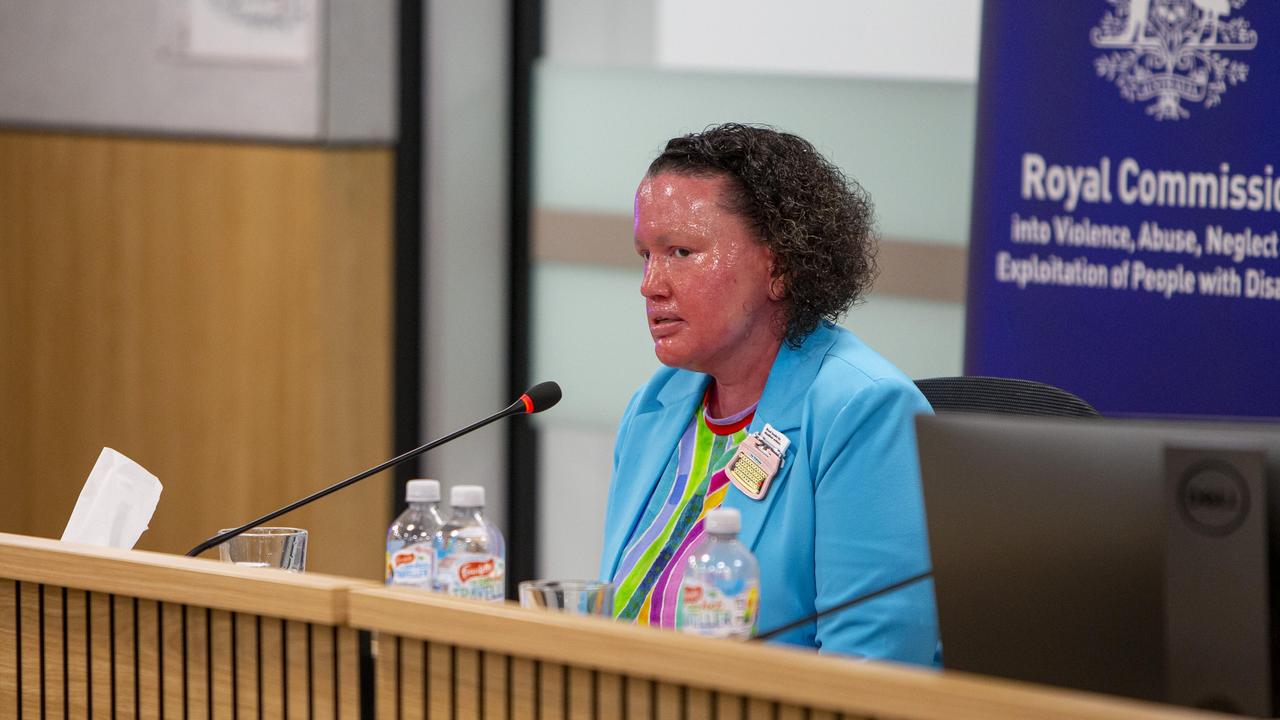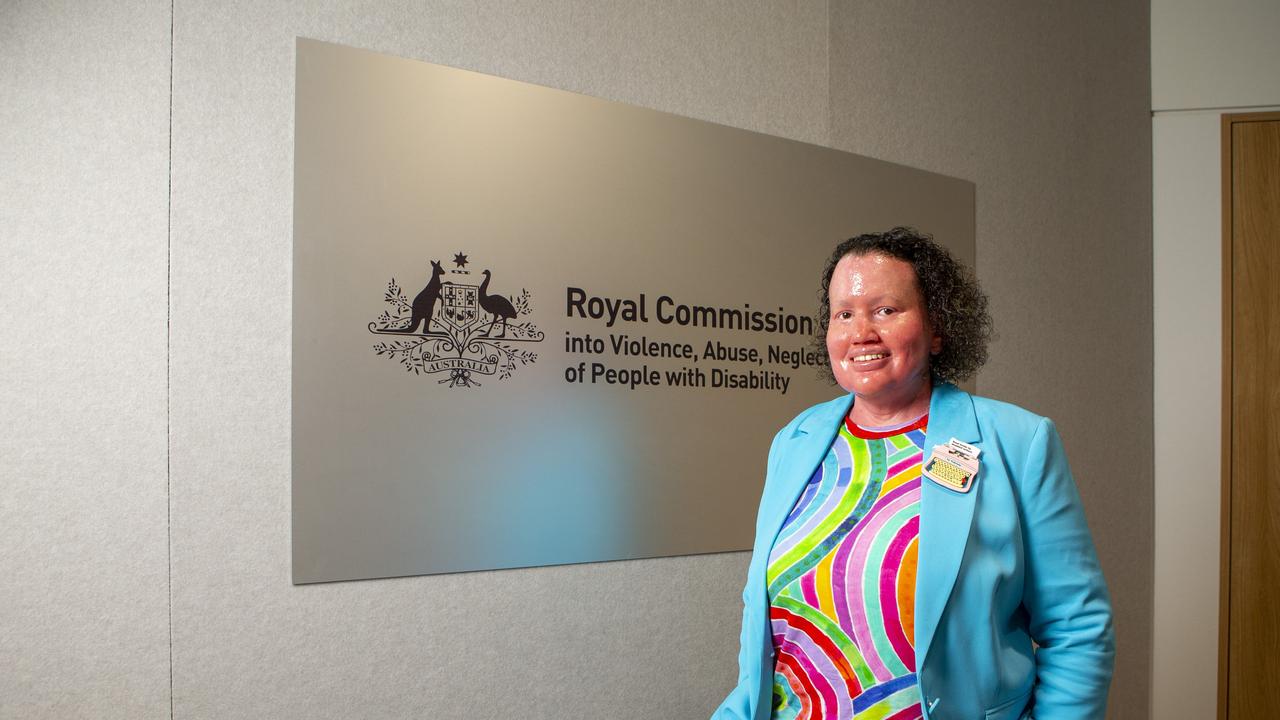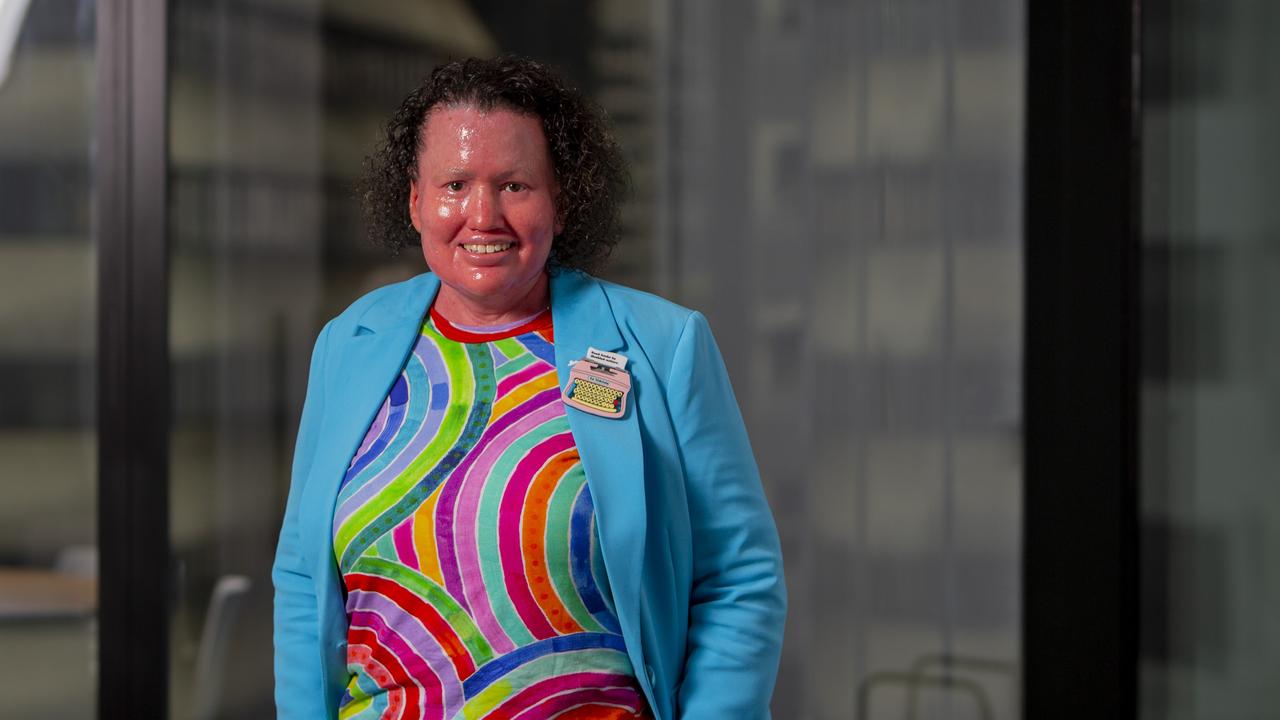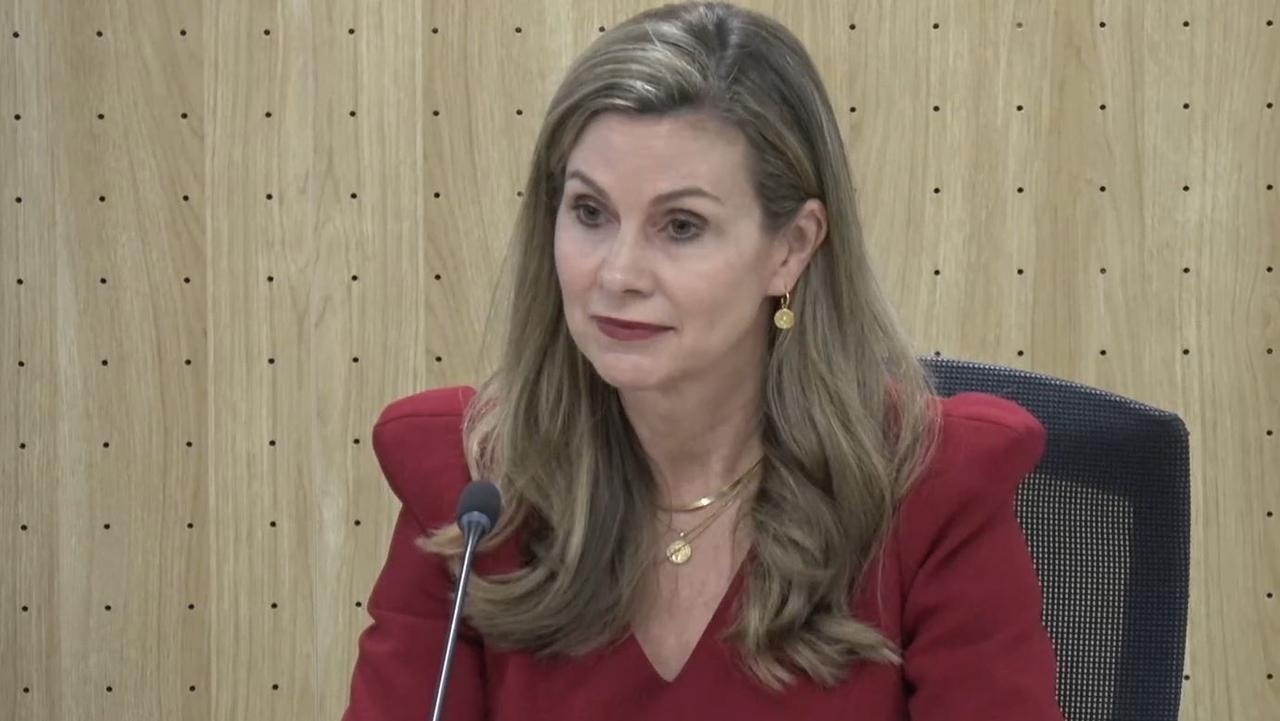‘Killed by fire’: Woman recalls horrific online abuse at disability royal commission
An Australian woman has told a royal commission of the harrowing and vile online abuse she has suffered on social media.
An Australian woman has told a disability royal commission of the harrowing online abuse she suffered on social media, including people comparing her to a “lobster” and someone who should be “killed by fire”.
Renowned writer Carly Findlay OAM recounted some of the disturbing comments made by complete strangers on a Reddit post with her image – some coming from all over the world.
“People had said things like, ‘What the f--k is that’?” Ms Findlay said.

Ms Findlay’s evidence was recounted on the final day of public hearings being held by the commission in Brisbane.
Shocking stories of targeted harassment, verbal abuse, physical assault and threatening behaviour towards people with a disability on public transport, online platforms and even on the street have been recounted over the past five days.
Ms Findlay, who was born with the skin condition ichthyosis, on Friday told the commission growing up in the small, religious country town Walla Walla was “hard”, as she was considered an outcast because of her skin colour.
“I was about 10 years old, my mum might have been the only black person to live in our small country town,” she said.
“That was hard. People used to whisper I’m red because my mum and dad are black and white, which isn’t true.”
Ms Findlay said there hadn’t been a “single day” someone hadn’t “mocked, laughed at or questioned” her appearance as soon as she left her house.

Much of the abuse also occurred on the internet, with Ms Findlay describing the derogatory slurs she saw on a Reddit forum mocking her appearance.
“There were hundreds of comments about my face … like, ‘What does your vagina look like?’
“They describe me as a lobster. They said I should be killed with fire.”
In an ironic twist, she responded to the post, causing the conversation to change.
“The original poster gave me an apology … the original post has been taken down,” Ms Findlay said.
“That importance of own voices, of us actually disabled people telling our story and intervening to say: ‘Hey, this isn‘t OK, and yes, this is me, I’m proud and confident in the way I look’ is really important.
In another disgusting YouTube comment, a stranger told Ms Findlay: “Get used to doggie style and get laid with the lights off and forget about daytime sex unless your partner’s blind. Don’t forget to pull those tampons up.”

Victoria and Federal Police couldn’t do a thing, she said.
Ms Findlay said she found it particularly difficult as a woman to try to stem the online abuse.
She recalled informing the eSafety Commissioner about the anonymous abuse but was frustrated that it would “only act if you’re suicidal or if a naked photo was leaked”.
“It should not take someone being suicidal for the eSafety Commissioner to act,” Ms Findlay said.
“I reported the anonymous abuse from people who write to me on my blog who say that I should be dead or make derogatory comments about my appearance or who are threatening to hack my website.
“The onus is always on the abused and it shouldn’t be.”
Ms Findlay said the existing legal frameworks were insufficient to protect people with disabilities.
“There’s a very high threshold that must be met for something to be classified as cyber abuse that can be acted on by the eSafety Commissioner,” she said.
“This leaves me and other disabled people liable to ongoing hurtful comments and abuse from complete strangers or people we know, and with no recourse other than to repeatedly contact the social media sites or platforms to try to get them to take action.
“This is both exhausting and should not be on our shoulders alone.”
Later that day, Australia’s eSafety commissioner Julie Inmam-Grant gave evidence her office had to provide serious intent to harm and whether content was menacing and offensive to a reasonable person.
“We cannot consider mere emotional or psychological distress,” she said.
“So fear, anger, grief and distress cannot be the soul determinant whether or not there is serious intent to harm.”

Ms Inman-Grant said they were limited in taking formal action against some online content as defamation and harm to reputation were not covered by their scheme.
She said the office had engaged with the disability support community to combat the online abuse of women who were living with an intellectual or cognitive disability.
“There is no one-size-fits-all and that we need to work with a large spectrum or broad spectrum of those with lived disability,” Ms Inmam-Grant said.
She said the development of the Online Safety Act was only in its early phase.
One of the major problems involved the office being properly funded to work in the disability area along with other vulnerable communities, like LGBTQI+ and Indigenous Australians
“I think to do this right we all have to be resourced with people so that we can be getting more consistent training, that we can make sure that there are more people with lived experience,” Ms Inmam-Grant said
“It all takes time, people and monetary resources, developing the right kinds of content and making sure that their they are screen readable, that they are easy English, that we are using Auslan interpretation.”




